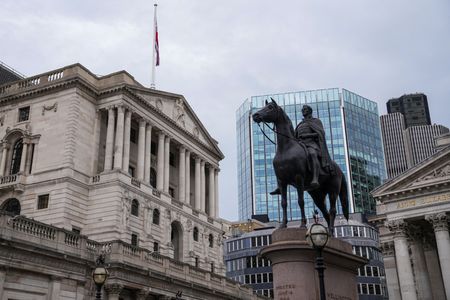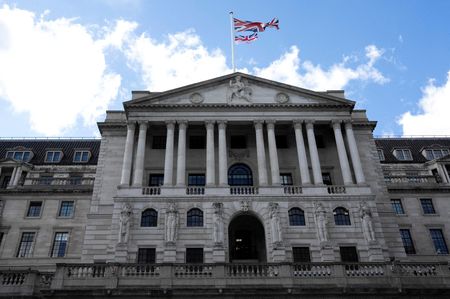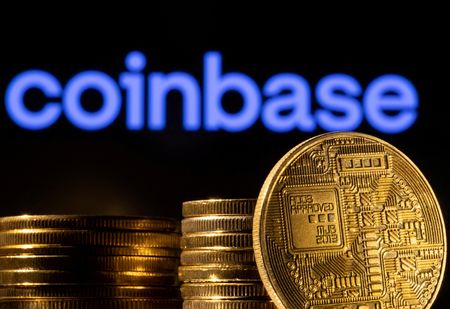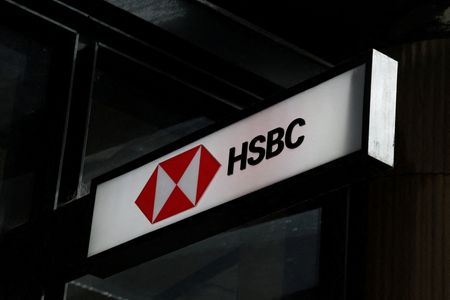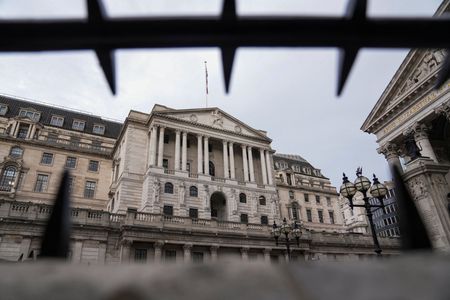By Joice Alves
LONDON (Reuters) -Sterling trimmed earlier gains on Thursday, moving back towards its lowest in months, after the Bank of England kept borrowing costs on hold, although a narrow vote and signs that Governor Andrew Bailey might soon join those seeking a policy easing kept the door open for a December cut.
Mindful of Britain’s still-high headline inflation rate, the nine-strong Monetary Policy Committee voted 5-4 to keep the central bank’s benchmark Bank Rate at 4.0%, the BoE said.
Most economists polled by Reuters last week predicted a 6-3 decision to leave the rate unchanged. Earlier this morning, markets were pricing a one-in-three chance of a cut.
FOCUS ON THE BUDGET
Sterling was 0.16% higher at $1.3072, having been up 0.3% before the decision, after hitting a seven-month low of $1.3011 on Wednesday. [GBP/]
The pound weakened a touch against the euro, which rose 0.1% to 88.13 pence after touching its highest since May 2023 on Wednesday.
While Bailey was among those who decided to keep borrowing costs unchanged, he was the only one of the five who felt that overall inflation risks had moved down. However, he felt there was “value in waiting for further evidence” of this in upcoming economic developments this year, the BoE said.
As part of a wider overhaul of how it explains its thinking, the MPC tweaked its key message about the outlook for rates.
A line from previous statements that it thought “a gradual and careful approach” to cutting rates was appropriate was replaced by the phrase: “If progress on disinflation continues, Bank Rate is likely to continue on a gradual downward path.”
Focus will be on what the central bank will do next month. By then, the BoE will have seen official inflation and jobs data for October and November and it will know the extent of tax increases which are widely expected in finance minister Rachel Reeves’ November 26 budget.
Reeves paved the way on Tuesday for broad tax rises to avoid a return to “austerity”, framing her second annual budget as one of “hard choices” to protect public spending while reducing Britain’s debt.
“The BoE made the right call to leave rates unchanged today. While there has been some positive news on the inflation front in recent weeks, the bottom line is that headline inflation is running at 3.8% – almost twice the BoE’s target,” said Zara Nokes, Global Market Analyst at J.P. Morgan Asset Management.
“The balance of risks could shift next year if large near-term tax hikes are announced at the Autumn budget, but until there is more meaningful progress on bringing inflation down, the Bank must exercise a high degree of caution in lowering rates,” Nokes added.
Not everyone agrees.
“The calculation is that it’s best to wait until after the Budget before moving – no big risk in waiting six weeks is the assumption. But equally, I would argue why wait?” said Neil Wilson, UK investor strategist at Saxo Markets.
(Reporting by Joice Alves. Editing by Amanda Cooper and Mark Potter)




